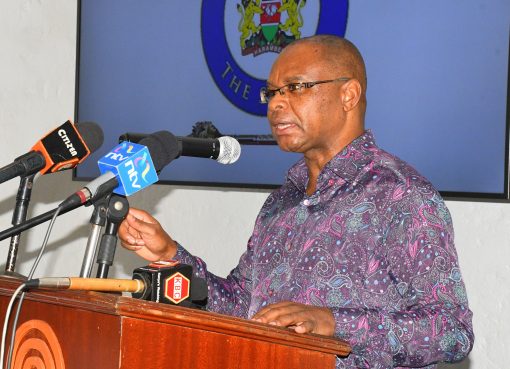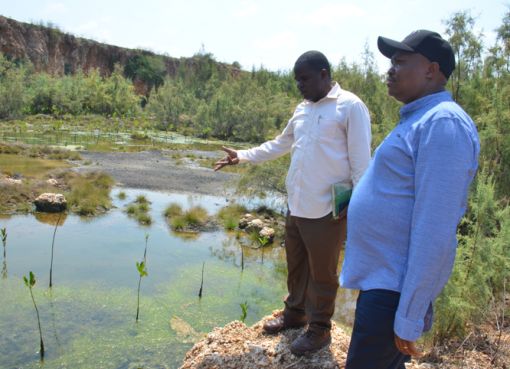Youth have been cautioned to conduct themselves with a lot of integrity so as to avoid being penalized when they received payment or any money on-line.
The counsel was given by the Kiambu County Commissioner (CC), Wilson Wanyanga while addressing administrators from 13 sub-counties of Kiambu and the National Hygiene programme committee in his boardroom.
The CC, while addressing the meeting which was assessing the first phase of the World Bank-funded programme, defended the committee from blame over the delayed payment for the youth who worked on phase one of the National Hygiene programme dubbed, Kazi Mtaani.
“Some of the few youths who did not receive their payment of Sh.600 per day which was paid on a weekly basis can only have themselves to blame for not giving proper details when they were recruited,” he noted.
The meeting was told that some of the people shared names and had only indicated the two names but omitted their middle names and that when the list was taken to Safaricom and the names did not tally with theirs, then they found themselves in the rejected list which had to be returned to Kiambu for verification.
They were further informed that some youths missed out on their money because their payment had been recovered after they borrowed on-line loans through Fuliza and ignored to repay not knowing that the payment for Kazi Mtaani was going to be paid through their M-pesa accounts.
The meeting further learnt that some of the youth upon realizing that they were indebted through their lines that were registered, they hurriedly registered new lines and gave them out before they were registered on M-pesa.
All the problems bedeviling those who missed their pay resulted from their own making and they should not blame the committee for delaying their payment of the phase one which ended on Wednesday day, noted Wanyanga.
Phase one of the NHP was carried out in Kabete, Kikuyu, Kiambaa and Thika sub-counties in which 2300 youths were paid a total of Sh.30,360,000. In Phase 2, some 23,881 are expected to work in the programme which will be carried out in the 13 sub-counties of Kiambu.
Kiambu was one of the eight counties in which the NHP was piloted last month. Others are Nairobi, Kisumu, Nakuru, Mombasa, Kwale, Kilifi and Mandera. Upon completion, the programme will enter into phase 2 which will be sponsored by the government of Kenya.
The elated youth thanked the government for being considered in the programme and pleaded to be put on board so that they can also work on the second phase of the programme.
By Lydia Shiloya



